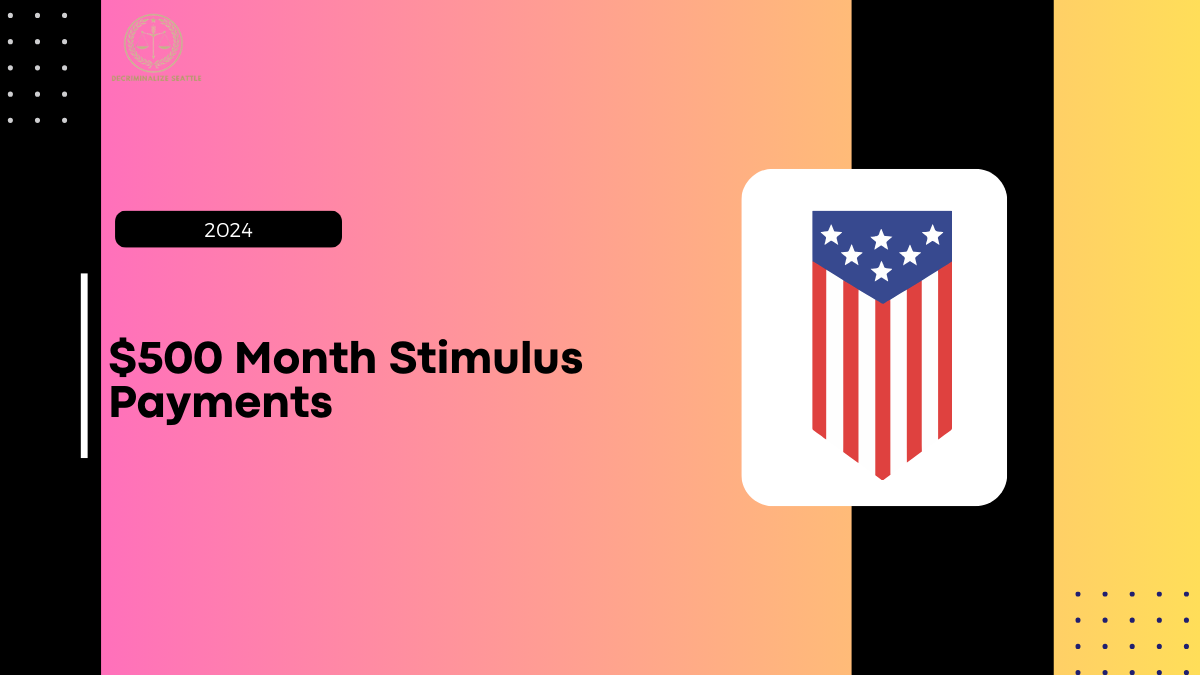As the financial repercussions of the COVID-19 pandemic continue to weigh heavily on American families, several states across the U.S. have initiated new stimulus programs to provide monthly financial support to low-income households. These initiatives, offering around $500 per month on average, aim to alleviate ongoing financial stress and establish a basis for long-term economic stability.

$500 Month Stimulus Payments in 2024
Unlike one-time relief payments, these programs are designed to create a steady financial safety net, acknowledging that the pandemic’s economic challenges require more lasting solutions. By focusing on specific groups such as low-income families, entrepreneurs, and young parents, these state-specific initiatives ensure that financial aid is tailored to address the unique needs of each community.
California’s Comprehensive Financial Assistance Initiatives
California has rolled out multiple programs targeting various groups to combat economic struggles:
- Long Beach Pledge Program: Launching in 2024, this initiative will offer $500 monthly to 200 low-income families with children. The goal is to provide economic stability for these families over a year, potentially setting a foundation for long-term financial security.
- Elevate MV in Mountain View: This program began in December 2022 and will run until December 2024, providing $500 per month to low-income parents to help ease their financial strain.
- Sonoma County’s Pathway to Income Equity: Set to start in January 2023 and run through January 2025, this initiative will provide $500 per month to 305 families over two years to improve their economic conditions.
Each initiative targets distinct regions and populations, reflecting California’s multi-faceted strategy to address economic instability across different communities.
Michigan’s Programs for Entrepreneurs and Maternal Health
Michigan has introduced two specialized programs aimed at supporting business owners and new mothers:
- Ann Arbor’s Guaranteed Income to Grow: This program offers financial assistance of $528 monthly to 100 low-income entrepreneurs from 2024 to 2025, with the objective of sustaining small businesses and boosting the local economy.
- Flint’s Rx Kids for New Mothers: Designed to support new and expectant mothers, this initiative provides substantial initial support, followed by monthly payments, recognizing the importance of financial security during early parenthood.
Both programs cater to specific community needs, promoting economic growth and maternal health in Michigan.
New Mexico’s Support for Young Parents Pursuing Education
- Learn, Earn, Achieve Program in Santa Fe: Tailored for young parents enrolled at Santa Fe Community College, this program provides $400 monthly to 98 participants from January 2024 to spring 2025. It aims to reduce financial barriers that might otherwise prevent these parents from completing their education, promoting both family stability and educational attainment.
New York’s Holistic Support for Low-Income Mothers
- New York City’s Bridge Project: This ongoing initiative, launched in June 2021, provides $1,000 per month to 1,200 low-income mothers, along with access to health and developmental support services. The project’s holistic approach offers financial aid and focuses on long-term well-being and development for both mothers and their children.
By integrating various support services, the Bridge Project serves as a model of comprehensive aid that addresses more than just financial needs.
Washington’s Focus on Building Resilience
- Growing Resilience in Tacoma: This program provides up to $500 monthly to low-income households through June 2025 to address persistent economic challenges. The initiative is designed to create a consistent income stream that helps families manage daily expenses and build resilience in financial instability.
This initiative is part of Washington state’s broader efforts to reduce income inequality and promote economic equity across its communities.
Click here to know more.